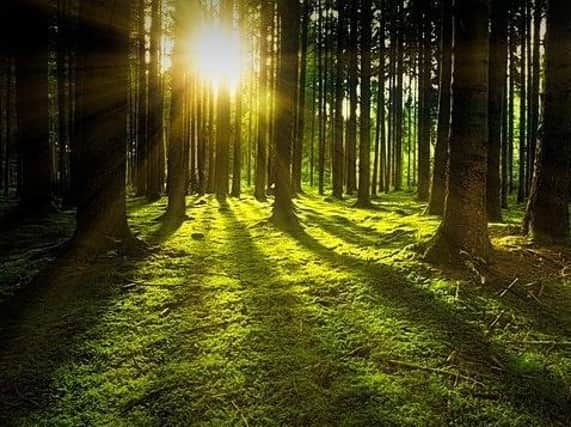Northern Forest £500m investment could benefit economy by £2.5 billion say environmental groups


Increasing tree cover in an area stretching from Liverpool to Hull woud boost the economy as part of a green recovery from the Covid-19 pandemic, say conservation organisations.
It has been claimed that nature-focused schemes can deliver returns several times the original investment in economic, environmental and social benefits.
Advertisement
Hide AdAdvertisement
Hide AdThe Wildlife and Countryside Link coalition of environmental groups say they have a wide range of proposed projects to help reduce flooding, plant trees and seagrass meadows, protect threatened species from juniper to bats and create habitats such as ponds and meadows.
They want the Government to invest in such schemes as part of a green recovery from the coronavirus crisis to create jobs and improve people’s lives and health, as well as cutting carbon emissions and tackling the nature crisis.
It will also make the UK more resilient to environmental economic risks such as floods, droughts, loss of important pollinating insects and climate change.
Many of the schemes groups in the Wildlife and Countryside Link have lined up are ones put on hold as a result of the Covid-19 crisis or which could be brought forward as part of a Treasury stimulus package.
Advertisement
Hide AdAdvertisement
Hide AdSchemes which the coalition say could be funded include a £300,000 project by Bristol Rivers Trust to reduce local flooding in the city, help species such as water voles and give 100,000 more access to nature.
The £2.1m Northern Forest Partnership Innovation Fund was launched earlier this month, offering support for tree planting schemes of up to 50 per cent of eligible costs.
With the support of the Department for Environment, Food and Rural Affairs, the Woodland Trust is managing the fund, which will foster the creation of new woodlands of three hectares or more across the Northern Forest by the planting of 1m trees by March 2022.
Dr Richard Benwell, chief executive of Wildlife and Countryside Link, said: “We can grow back better from the coronavirus pandemic.
Advertisement
Hide AdAdvertisement
Hide Ad“As we struggle to recover from a global natural disaster, investing in nature can make our economy more resilient to future harm from the climate and ecological emergencies: flood, fire, drought, harvest failure, and other risks.
“Quick Government investment in nature now can also level up people’s access to a decent environment, ensuring that nature-deprived communities across the country enjoy a greener future.”
Woodland Trust chief executive Darren Moorcroft said: “You can’t build a more resilient society without a resilient environment. We need to reboot the economy to restore our natural environment and cut carbon.
“Protecting, restoring and expanding our native trees and woods - with all the social, economic and environmental benefits that these will bring - must be at the heart of any ‘green recovery’.”
Advertisement
Hide AdAdvertisement
Hide AdMeanwhile, conservationists say investment in restoring peatlands will help boost jobs and cut carbon emissions in the wake of the coronavirus pandemic.
Government advisers the Committee on Climate Change recently urged ministers to fund planting trees and restoring peatland as part of its stimulus package.
The International Union for Conservation of Nature (IUCN) UK peatland programme director Clifton Bain said repairing damaged and drained peat bogs could deliver a range of benefits.
Healthy peatland stores carbon and is home to unusual and threatened wildlife, from carnivorous plants to wading birds and insects.
Comment Guidelines
National World encourages reader discussion on our stories. User feedback, insights and back-and-forth exchanges add a rich layer of context to reporting. Please review our Community Guidelines before commenting.